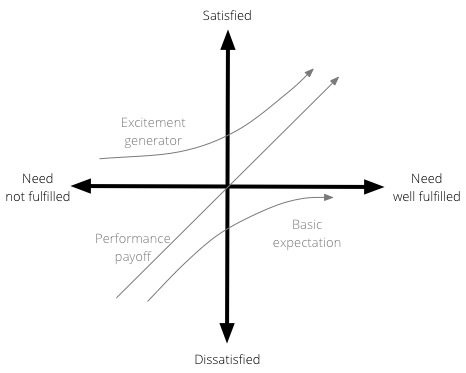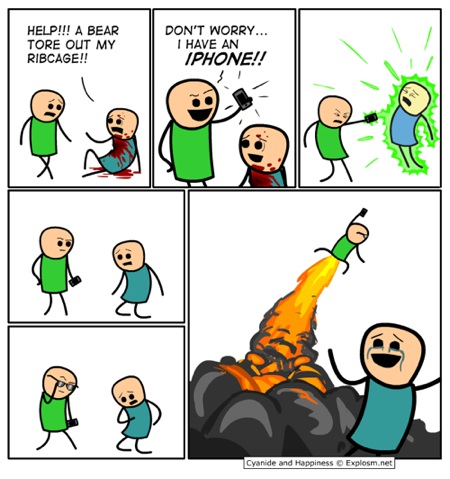I’m often amazed at how the people I follow online tend to talk about the same things, even if they are most likely not connected to each other. It happened again this week, with three articles about the value of starting (and finishing) something, even if you’re not sure how it’s going to work out.
First, there’s I cannot design or code a responsive website by Nick Jones:
I didn’t know how to do it right, so first I did it wrong. After I had done it wrong a few times, things started to work. It’s not perfect, but it works. I still don’t know the right way to do anything but I don’t worry about that anymore. Now I just hack and hack and trust that I’ll arrive at a solution. Sometimes it even makes sense.
By ignoring my doubts and trusting my instinct, I made myself vulnerable to attack. The attacks never came. They only ever existed inside my head. It turns out, the guys I was afraid would laugh at my new site, were the first to give respect. Most of my fears were a waste of energy. So are yours. What if you shut out all the noise and just got started?
Then Alex Maughan wrote a great piece called Making is Momentum:
I need to do more and self-criticise less. Critical analysis of oneself is of course important, but it needs to be done with a positive end in mind. I’ve just been beating the crap out of myself. There’s a big difference. It’s not only about replacing the stick with carrots, it’s also about constantly making sure I’m buying the right carrots from sources that prove themselves to be the most trustworthy and wholesome. […]
I need to start being nicer, both to myself and those around me. Making is momentum. Perfection is spurious and stifling.
And finally, here’s Brian Bailey in The Smallest Way Forward:
In the case of a creative project like a novel, the most important thing to do is to write another page. It will be that way every day until it is finished. To be successful, though, you have to allow for other ways to make progress. Pauses are healthy, but it’s important to pause a specific task like writing the next chapter or implementing payment processing, without pausing the project itself.
It’s not the most important thing each day; it’s anything that moves you forward, that brings this new thing a little closer to being a real thing.
That’s three essays in the space of one week, all about the same thing. About not letting the fear of failure or defeat or imperfection stand in the way of creating something. Perhaps we can sum up this whole topic using the King’s words in Alice’s Adventures in Wonderland:
Begin at the beginning and go on till you come to the end: then stop.

